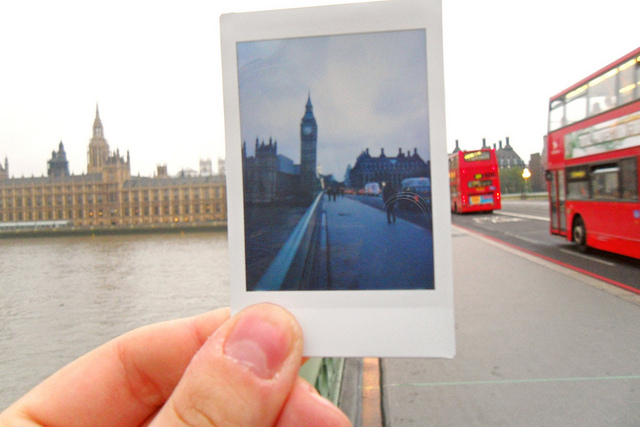More than a theatrical flourish for the cameras: evidence under oath, perjury and parliamentary privilege
Select committees of both houses of Parliament have the authority to take evidence from witnesses under oath, and have chosen to do so during the current parliament. Alexander Horne looks at the issues, arguing that the decision to do so represents more than just a theatrical flourish for the cameras, and that the issue merits further consideration.

Credit: Nige Harris, CC BY NC SA 2.0
The issue of select committee powers has received renewed interest during the 2010-15 Parliament, culminating in a report from Liaison Committee on Select committee effectiveness, resources and powers (in October 2012); and, subsequently, a report by the Joint Committee on Parliamentary Privilege in July 2013 (and a Government response later that year).
Although parliamentary select committees are frequently described as being powerful and influential, questions have arisen about their ability both to summon witnesses and punish those who are guilty of contempt or perjury.
In relation to the latter issue, the Government’s Green Paper on Parliamentary Privilege (Cm 8318, 2012), which preceded the Joint Committee’s report, had noted that:
The Houses’ power to punish non-members for contempt is untested in recent times. In theory, both Houses can summon a person to the bar of the House to reprimand them or order a person’s imprisonment. In addition, the House of Lords is regarded as possessing the power to fine non-members. The House of Commons last used its power to fine in 1666 and this power may since have lapsed.
In this regard, another issue that is often cited is the fact that it could be difficult for the House to give a potential contemnor or perjurer a fair trial. The Joint Committee recognised that there was an “institutional reluctance to take action which may seem oppressive” which, combined with the “fear of a successful legal challenge” under Article 6 of the European Convention on Human Rights at the European Court of Human Rights, meant that the House had been reluctant to exercise its penal jurisdiction.
The matter is further complicated by Article 9 of the Bill of Rights. This provides (in modern parlance) that: “the freedom of speech and debates or proceedings in Parliament ought not to be impeached or questioned in any court or place out of Parliament.” In effect, this appears to restrict the ability of Parliament to punish contemnors through the UK courts (see: e.g. R. Kelly, Select Committees: Powers and Functions in A. Horne, G. Drewry and D. Oliver, Parliament and the Law, (Oxford, Hart, 2013, p161-196)).
The Joint Committee considered the issue of criminalising certain contempts, but rejected this approach arguing, inter alia, that “it would entail a radical shift of power between Parliament and the courts.” Yet one issue that the Joint Committee did not touch on in any detail was the historic exercise of penal powers culminating with the passage of thePerjury Act of 1911.
In the case of R v Chaytor and others in 2010, UKSC 52, Lord Phillips noted that prosecution of offenders for perjury in the courts had occurred in the 19th century, quoting the 2004 edition of Erskine May to the effect that:
In cases of breach of privilege which are also offences at law, where the punishment which the Commons has power to inflict would not be adequate to the offence, or where for any other reason the House has thought proceeding at law necessary, either as a substitute for, or in addition to, its own proceedings, the Attorney General has been directed to prosecute the offender.
He went on to say:
It is of note that in two of the cases cited the Attorney General was directed to prosecute witnesses to parliamentary committees for “wilful and corrupt perjury” – CJ (1860) 258 and CJ (1866) 239.
According to the Commons Journal, the first case related to one James Welsh, who was accused of perjury when giving his evidence before a Private Bill Committee (on the Moy River Navigation Bill). The second case related to a direction to prosecute one Henry Chambers, for alleged perjury before a select committee which had been established to determine the matter of an Election Petition (which complained of an undue election and return for the Borough of Maidstone). It is notable that both of these cases pre-dated the passage of the Parliamentary Witnesses Oaths Act 1871 which had allowed for false evidence under oath to be counted as perjury.
The treatment of the Bill of Rights as an impediment to prosecution may also be overstated This was recognised in the 23rd edition of Erskine May (London, Butterworths, 2004) which suggested that the Bill of Rights had been impliedly amended by the Perjury Act 1911, which now punishes false evidence under oath before committees of either House (p115).
Section 2 of the 1911 Act provides maximum penalties on conviction of a false statement on oath, otherwise than in a judicial proceeding, of seven years penal servitude, or imprisonment for two years, or a fine (or a fine combined with one of the other two penalties).
Although there are no records of any witnesses being punished for perjury since the passage of the 1911 Act, in 1999, an earlier Joint Committee on Parliamentary Privilege (often referred to as the Nicholls Committee) had observed that “parliamentary privilege was not intended to stand in the way of evidence relating to proceedings being given in court” in the case of perjury. It recorded that:
Perjury before a House or a committee is dealt with in statute, as well as being a contempt. The Lords have always had the power to take evidence on oath and to treat false evidence as being liable to the penalties of perjury. That right was given to the Commons, on a permanent basis, in 1871 by the Parliamentary Witnesses Oaths Act, superseded by the Perjury Act of 1911 (para 317)
The 9th edition of Erskine May (London, Butterworths, 1883) had recognised that in the 17th century and prior to the passage of the 1871 Act, the House of Commons had relied on a variety of unusual expedients to remedy the defect in their own authority, including: selecting some of their own members who were Justices of the Peace to administer oaths in the magisterial capacity (a practice that Erskine May recognised as “manifestly irregular, if not illegal”); sending witnesses to be examined by one of the judges and examining witnesses on oath before joint committees (p480).
By 1964, the 17th Edition of Erskine May stated:
By section 1 of the Perjury Act 1911, where evidence is given upon oath, the giving of false evidence is punishable as perjury. The power of the House to punish for false evidence is not, however, superseded by this Act […] if it appears that a conviction at law can also be obtained, it is to the competent House to direct the Attorney General to prosecute the offending witnesses for perjury. Where evidence is not given on oath it is punishable only as a contempt (p703).
The Nicholls Committee suggested that “in the light of the prominence given in this century to Article 9, it would be advisable to reaffirm these […] statutory exceptions to that Article in any future statute on privilege.” However, following the report of the Joint Committee in 2013, any such future legislation on privilege seems unlikely.
In those circumstances, two question arise. The first is whether the parliamentary authorities might wish to draw anyoffence of perjury to the attentions of the courts. The Nicholls Committee had concluded that:
“Presumably, [this] would be considered only when a grave offence was specifically drawn to the attention of the House and the prosecuting authorities by the appropriate committee.” (para 318)
The then Clerk of the House, Sir Robert Rogers (now Lord Lisvane) also suggested (in written evidence to the Liaison Committee at Ev W79-80) that pursuing a case of perjury could be problematic insofar as (inter alia) it left the decision to pursue a case with the prosecuting authorities (not Parliament) and transferred consideration of the case to the courts, which might have regard to the degree of fairness with which the committee had treated the witness.
Given that a contemnor would only be under threat of prosecution in circumstances where he or she had been put under oath by a select committee, the second question is when it would be appropriate for a committee to put a witness under oath.
The 2011 current edition of Erskine May directly echoes a passage in the 9th edition to the effect that “it is not usual … for select committees to examine witnesses on oath, except upon inquiries of a judicial or other special nature” (p824).
In the 2010-15 Parliament, the Home Affairs Committee has chosen to take evidence under oath in respect of its inquiry into child sexual exploitation in Rotherham. Another well-known example in the current Parliament was when the Public Accounts Committee administered the oath to the General Counsel and Solicitor to the Inland Revenue. This approach was criticised by another former Clerk of the House, Sir Malcolm Jack, in a lecture (Parliamentary Privilege: a dignified or efficient part of the Constitution?) following his retirement. He said:
I do not think that that action was reasonable. Again let me be clear: I understand what the Committee is trying to do – elucidate the sometimes murky details of government spending – but if it really wants to pick a fight, that should ultimately be done with the Minister not his civil servants, the only exception being in the case of Accounting Officers who are directly personally responsible for their actions.
Yet in spite of this, the power remains. Thus, rather than simply a theatrical flourish for the cameras, the issue of evidence under oath before committees might merit some further consideration.
—
This article gives the views of the authors, and not the position of Democratic Audit UK, nor of the London School of Economics. This article originally appeared on the UK Constitutional Law Association blog. Please read our comments policy before commenting
—
 Alexander Horne is an employed barrister at the House of Commons and a teaching fellow at University College London.
Alexander Horne is an employed barrister at the House of Commons and a teaching fellow at University College London.





 Democratic Audit's core funding is provided by the Joseph Rowntree Charitable Trust. Additional funding is provided by the London School of Economics.
Democratic Audit's core funding is provided by the Joseph Rowntree Charitable Trust. Additional funding is provided by the London School of Economics.
Investigate
Nice Site, Carry on the excellent work. Appreciate it.
Evidence under oath, perjury and parliamentary privilege – an exploration, by Alexander Horne https://t.co/vlZASBt0BY
More than a theatrical flourish for the cameras: evidence under oath, perjury and parliamentary privilege https://t.co/gyTA2dmETy
More than a theatrical flourish for the cameras: evidence under oath, perjury and parliamentary privilege https://t.co/C2FE07cWEK